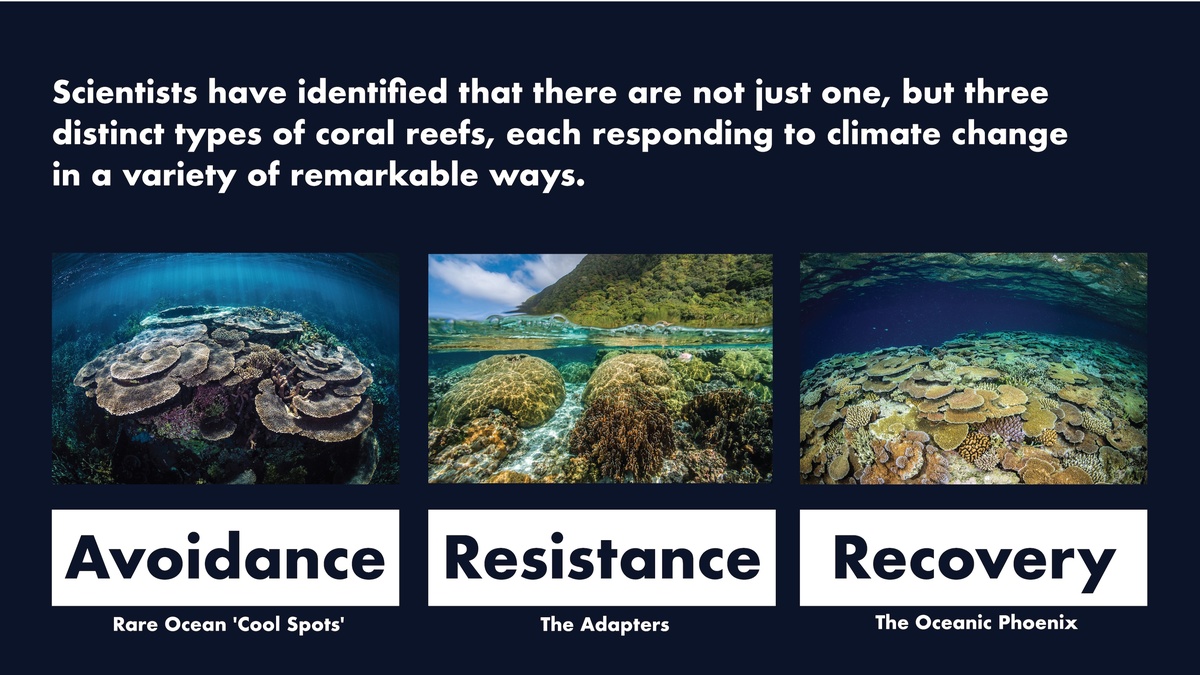Climate Week NYC
September 17–24, 2023
Opinion
We Reap What We Subsidize on Climate
By Monica Medina and Daniel Zarin
News
Announcing a New Direct Access Fund for Indigenous Peoples and Local Communities Protecting Forests in the Democratic Republic of the Congo

New Study Shows Conservation Benefits Beyond Protected Areas
 (1).jpg)
More Hope for Coral Reefs in a Warming World


WCBS
Nature is a Climate Solution
We must urgently transition off fossil fuels and protect nature to tackle the world's global, WCS President and CEO Monica Medina told WCBS from the Central Park Zoo. "One third of all the carbon solutions that we need are here in nature. It's trees."
Coral Reefs
Hope Underwater

Take Action
Support the U.S. Foundation for International Conservation Act
Podcast
WCS Wild Audio Climate Week Series
PART 1: WHY IS FOREST INTEGRITY SO IMPORTANT?
In anticipation of New York Climate Week taking place later this month during the 78th Session of the UN General Assembly, WCS Wild Audio presents the first in a 3-part series exploring bold approaches to the growing climate crisis. For Part 1, we look at why maintaining the ecological integrity of forests is so important and what can be done both to avoid further degradation and restore what’s been lost. Reporting: Nat Moss; Guests: Tom Evans, Kemen Austin
PART 2: WHY WE NEED CLIMATE ADAPTATION
The most important thing we can do to address climate change is reduce our greenhouse gas emissions. Protecting intact nature can also be a big part of the solution. But let’s say we do those things and we manage to constrain climate change. What type of world will be left for us to live in, if we don't intentionally change our conservation strategies now? That’s where climate adaptation has a part to play. Reporting: Dan Rosen; Guests: Liz Tully, Paul Elsen
Part 3: Investing in At-Risk Forests with the REDD+ Framework
WCS Executive Director of Markets, Todd Stevens, wants to find sustainable, financially viable incentives for protecting nature. Linking field-based conservation to private sector funding under the REDD+ framework, his goal is to use capital to ensure positive, environmentally friendly economic development in and around conservation sites.
This model rewards restoration and protection of the environment, ultimately linking healthy ecosystems to healthy economies. At the heart of this markets-based approach, says Todd, lie at-risk forests, which absorb harmful Co2 emissions. Hannah Kaplan has the story. Reporting: Hannah Kaplan; Guest: Todd Stevens
Listen
Nature Positive Hub
Delivering integrity in the VCM: Developments in project REDD+ towards high quality forest carbon crediting
Moderated by Kevin Brown — Forest Carbon Technical Advisor, WCS
Julianne Baroody — Senior Director of Forest Carbon Innovation, Verra
Joshua Tosteson — President, Everland
David Shoch — Forestry Director, TerraCarbon
Deborah Lawrence — Chief Science Officer, Calyx Global
Erin Sills — Head of the Department of Forestry and Environmental Resources, NC State University
Biodiversity Credits: Issues, Challenges and Opportunities for Financing Biodiversity Conservation
Moderated by Ray Victurine — Director of Business & Conservation, WCS
Mariana Sarmiento — CEO, Terrassos
Akanksha Khatri — Head of Nature & Biodiversity, World Economic Forum
Michael McGreevey — Director of Conservation Investments, Conservation International
Sinclair Vincent — Director of Sustainable Development Innovation and Markets, Verra
Andrew Deutz — Managing Director, Global Policy & Conservation Finance, TNC
Hania Othman — Biodiversity Credit Alliance
Mark Tracy — Co-Founder and Chairman, Earthacre
Scaling REDD+: How can the VCM support countries to achieve ambitious climate action through REDD+ and meet sustainable development goals
Moderated by Dr. Sarah M Walker—REDD+ Director, WCS
Roselyn Adjei — National REDD+ Focal Point, Government of Ghana
Pradeepa Bholonath — Senior Climate Director, Guyana Ministry of Natural Resources
Derrick John — Chair, National Toshaos Council of Guyana
Fermin Chimatani — President, ANECAP – Peru’s National Association of Executors of the Communal Reserves Administration Contract
Jorge Rodriguez Zúñiga — General Director, FONAFIFO – National Forest Financing Fund, Costa Rica
Daniel Ortega-Pacheco — Director of BIOCARBON and Co-Chair of the Expert Panel of the IC-VCM – Integrity Council for the Voluntary Carbon Market
Beto Borges — Director of Communities and Territorial Governance Initiative, Forest Trends
Joshua Tosteson — President, Everland
WCS Impact
- Nature isn't just part of the solution; it's THE critical climate solution. Protecting nature is key to addressing the climate, biodiversity, and health crises.
- High-integrity forests play a key role in mitigating the climate and biodiversity crises. WCS supports approximately 6% of the world's forest cover in the landscapes where we operate.
- Nature-based solutions provide 30% of the climate action we need by 2030, primarily from forests. But they get only 8% of climate finance. WCS is mobilizing innovative finance to be able to deliver on 30x30.
- Forest restoration is crucial to limit global warming to 1.5°C. But it's not just about re-establishing cleared areas. A WCS new study reveals there's an area almost the size of Russia—1.5 billion hectares—of degraded forests that could be restored.
- Indigenous Peoples and local communities receive less than 1% of biodiversity and climate finance despite being among the most effective stewards of conservation. Their access to this funding must be increased. WCS partners with 205+ Indigenous Peoples and 2,000+ local communities across the globe to ensure equitable, just, and durable conservation.
- As one of the largest conservation organizations globally, with headquarters in NYC, WCS reaches 3.5+ million people annually through our zoos and aquariums, raising awareness about climate and biodiversity crises and mentoring the next generation of nature’s guardians.
- With the largest and longest field conservation program in the world, WCS has over 3,500 staff, 90% are national citizens, working on the frontlines to address the climate crises.
2023 WCS Impact Report
Sign Up for Email Updates
Get news from the field and learn about ways you can help Earth’s most threatened species.

